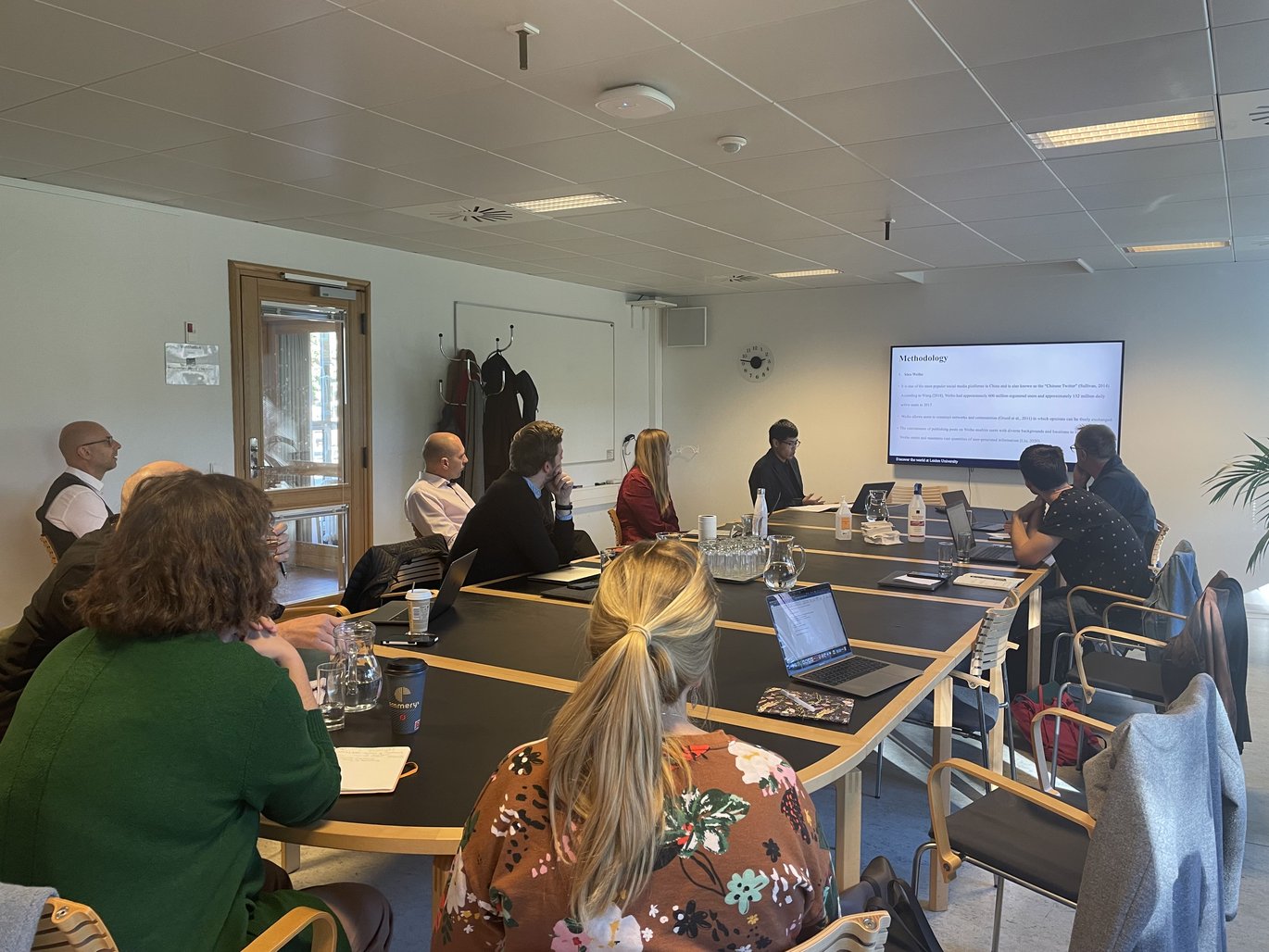Aarhus University hosts the first academic conference for Mundus alumni
On October 19th, 2022, a group of academically-driven Mundus Journalism alumni gathered in Aarhus for an ECREA pre-conference under the theme Journalistic Challenges in a Global Perspective. It was the first-ever Mundus-focused academic conference.

On October 19th, 2022, a group of academically-driven Mundus Journalism alumni gathered in Aarhus for an ECREA pre-conference under the theme Journalistic Challenges in a Global Perspective. It was the first-ever Mundus-focused academic conference. In her welcoming words, Dr. Penny Sheets-Thibaut, Chair of the Mundus Board of Studies since 2019, expressed how she had been “dreaming about this as a possibility” for a long time, and that it was “thrilling that we are finally having this event.”
The vast majority of Mundus Journalism alumni work in the fields of journalism and communication, while a recent Mundus survey shows that around 10 per cent are pursuing an academic career. For this reason, when the Media and Journalism Studies department at Aarhus University won the bid to host the 2022 ECREA conference, the Mundus Consortium saw a clear opportunity to organise a related event to kick-start a truly global network of journalism researchers.
The European Communication Conference is a biennial event organised by ECREA, the European Communication Research and Education Association. It is considered the largest media and communication academic conference in Europe and, for the first time in 2022, the event is taking place at a Scandinavian university. Under the theme of ‘Rethink Impact’, around 1.300 researchers populated the Aarhus University campus between October 19-22.
In true Mundus spirit, which centres on diversity and inclusivity, the call for papers for the pre-conference invited alumni to submit abstracts that represented a wide range of methodologies and theoretical standpoints. The Review Committee consisted of Andreas Schuck (University of Amsterdam), Morten Brænder (Aarhus University) and Thomas Hanitzsch (LMU Munich). In the end, the program included seven presenters, divided into two panels, ranging in cohorts graduating from 2009 to 2022 and at different stages of their academic careers. Many parts of the world were represented not only by the nationality of the presenters but also by the regions in which their research was conducted.
The first panel, chaired by former Mundus Board of Studies Chair, Dr. Henrik Bødker, included presentations from Kait Bolongaro, Kostiantyn Yanchenko, Dechun Zhang and Fabíola Ortiz. Despite the wide variation in approaches, some clear interests cut across all papers, which circled around populism, nationalism and conflict. Thereafter, Scott A. Eldridge II, Sandra Banjac and Nathalie Weatherald presented in a session chaired by Dr. Sheets-Thibaut. This miscellaneous collection of papers centred on questions of what journalism is, who gets to say what it is and how sources should be used or protected.
In between presentations, Prof. Thomas Hanitzsch provided insight and advice on different strategies for scientific publications. Finally, Dr. Morten Brænder, Director of the Centre for University Studies in Journalism at Aarhus University, set a discussion on ideas and suggestions for initiatives and next steps to take in this newly established Mundus Journalism academic and PhD network, before inviting participants to a nice dinner.
Aside from a strong academic program that led to engaging discussions, the event also offered a chance for Mundus alumni and staff to meet again and catch up. In so doing, this pre-conference has marked the beginning of a Mundus network that seeks to strengthen collaboration and exchange across academically-driven graduates.
The full program for the pre-conference, including abstracts, can be found here.